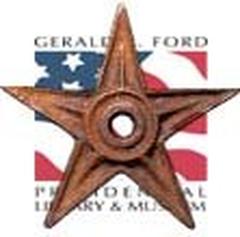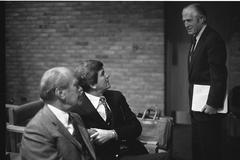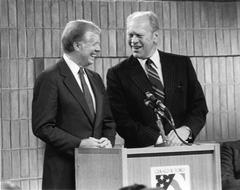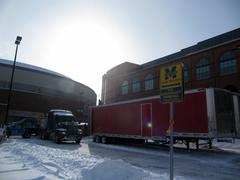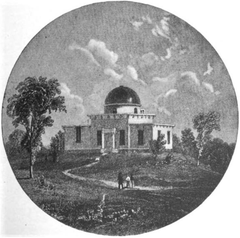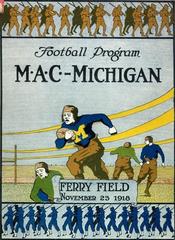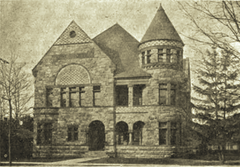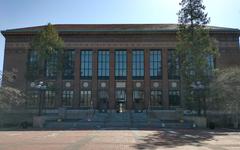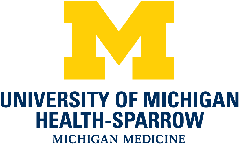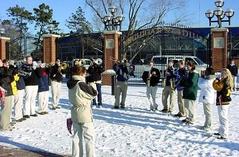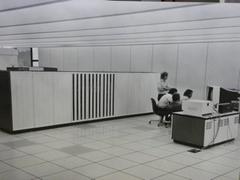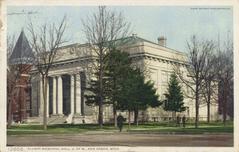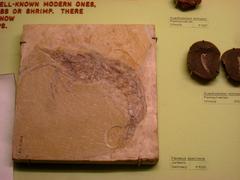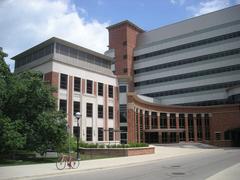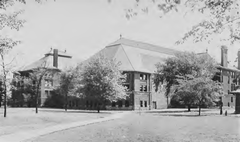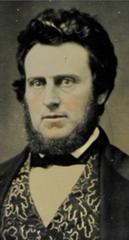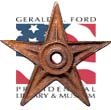
Gerald R. Ford Presidential Library: Visiting Hours, Tickets, and Guide to Ann Arbor Historical Sites
Date: 14/06/2025
Introduction: History and Significance
Situated on the University of Michigan’s North Campus in Ann Arbor, the Gerald R. Ford Presidential Library is a premier destination for those interested in American history, presidential studies, and archival research. Established in 1981, the library complements the Gerald R. Ford Presidential Museum in Grand Rapids by focusing on President Ford’s extensive documentary legacy. Housing approximately 25 million pages of papers, audiovisual materials, and artifacts, the library provides unique insights into Ford’s leadership during pivotal events such as the Watergate aftermath, the nation’s economic struggles in the 1970s, and the end of the Vietnam War.
The library is more than a research repository; it offers dynamic educational programs, public events, and special exhibits that foster civic discourse and historical understanding. With free admission, ample parking, and accessibility accommodations, it welcomes history enthusiasts, scholars, students, and visitors exploring Ann Arbor’s historical landscape. For up-to-date visitor information, including hours and event schedules, consult the official library website and the National Archives’ page.
Table of Contents
- Origins and Establishment of the Gerald R. Ford Presidential Library
- Gerald R. Ford’s Presidency and Legacy
- Significance within the Presidential Library System
- Archival Holdings and Research Value
- Visiting the Library: Hours, Tickets, and Accessibility
- Exhibits and Educational Programs
- Research Facilities and Access
- Visitor Experience and Practical Tips
- Ann Arbor Historical Sites and Attractions
- Frequently Asked Questions
- Events, Programs, and Visitor Information
- Summary and Call to Action
- References
Origins and Establishment
The Gerald R. Ford Presidential Library, located at 1000 Beal Avenue on the University of Michigan’s North Campus, was dedicated in 1981 under the Presidential Libraries Act of 1955. Its establishment in Ann Arbor, Ford’s alma mater, reflects his enduring ties to the university, where he excelled as a student and athlete in the 1930s (The Atomic Age). Unlike most presidential libraries, its collections are physically separate from the associated museum in Grand Rapids, which underscores Ford’s connections to both cities.
Gerald R. Ford’s Presidency and Legacy
Gerald R. Ford served as the 38th President of the United States from 1974 to 1977, leading the nation through the turbulent aftermath of the Watergate scandal and prioritizing national healing. His presidency also addressed inflation, recession, and the final stages of the Vietnam War. The library’s holdings capture these transformative years and also document Ford’s earlier congressional service and post-presidential endeavors.
Significance within the Presidential Library System
The Ford Library is administered by the National Archives and Records Administration (NARA) and is one of 15 presidential libraries nationwide. Its distinct focus on scholarly research, separate from the more exhibit-oriented museum, makes it an essential resource for historians, political scientists, journalists, and the public (AOTUS Blog).
Archival Holdings and Research Value
The library’s collections are extensive and diverse:
- Presidential Papers: Official documents, memos, and decision memoranda from Ford’s presidency, many digitized for online access (The Atomic Age).
- Congressional Records: Covering Ford’s 25-year tenure as a U.S. Representative, including correspondence and legislative files.
- Personal and Family Papers: Materials documenting Ford’s personal life and family.
- Oral Histories and Audiovisual Collections: Interviews with key administration figures, photographs, film, and audio recordings.
- Betty Ford Papers: Documents related to the First Lady’s public health advocacy and social initiatives (Wikipedia).
- Pre- and Post-Presidential Materials: Congressional and post-presidency records, including public speeches and international correspondence (Wikipedia).
- Federal Records and Donated Materials: Additional legislative files and personal papers from Ford-era associates (Ford Library official site).
- Audiovisual Collection: Over 3,500 hours each of audio, film, and video, along with 450,000+ photographs (Wikipedia).
Expert staff provide research assistance, and many resources are digitized for remote access (Ford Library & Museum).
Visiting the Library: Hours, Tickets, and Accessibility
- Hours: Monday–Friday, 8:45 a.m.–4:45 p.m., by appointment. Closed on federal holidays.
- Admission: Free; no tickets required. Appointments are necessary for research access.
- Parking: Available in University of Michigan North Campus visitor lots.
- Accessibility: Fully accessible, with ramps, elevators, and ADA-compliant restrooms. Contact the library in advance for specific needs.
- Guided Tours: Not regularly available, but special programs and lectures are scheduled throughout the year (Ford Library official site).
Exhibits and Educational Programs
Permanent Timeline Exhibit
The main exhibit is a chronological journey through Ford’s life—from his early years in Grand Rapids and at the University of Michigan to his presidency and beyond. This timeline contextualizes Ford’s leadership in the challenging landscape of the 1970s, highlighting events like Watergate and the nation’s bicentennial (Ford Library Exhibits).
Temporary and Digital Exhibits
Rotating temporary exhibits focus on pivotal moments or themes, such as the Vietnam War or Ford’s decision-making during Watergate. Select exhibits and digitized archives are available online for remote exploration (Ford Library Exhibits).
Betty Ford and Special Artifacts
The library displays personal and official artifacts, including handwritten notes, correspondences, memorabilia from state visits, and items related to Ford’s connection to the University of Michigan (MLive).
Educational Outreach
The library collaborates with the University of Michigan and local schools to promote civic engagement and historical inquiry through workshops, tours, and educational programs. Resources are also available online for remote learners (Ford Library official site).
Research Facilities and Access
- Research Room: Open by appointment for researchers, with microfilm readers, computer terminals, and staff assistance.
- Research Support: Travel grants and the annual Gerald R. Ford Scholar Award are available to support scholarly work (Prologue Blog).
Visitor Experience and Practical Tips
- Plan Ahead: Schedule research appointments and check for special events before your visit.
- Identification: Researchers must present valid photo ID.
- Personal Items: Bags and coats may need to be stored in lockers; only pencils, laptops, and notepads are allowed in the research room.
- Photography: Generally prohibited in archival areas; personal devices allowed for note-taking.
- Amenities: No on-site dining, but campus cafes and restrooms are nearby.
- Accessibility: All public areas are ADA compliant, and wheelchairs are available.
Ann Arbor Historical Sites and Nearby Attractions
Enhance your visit by exploring other notable Ann Arbor destinations:
Downtown Ann Arbor, with its vibrant arts and dining, is just a short drive or bus ride away.
Frequently Asked Questions
Q: What are the library’s visiting hours?
A: Monday–Friday, 8:45 a.m.–4:45 p.m., closed on federal holidays.
Q: Is admission free?
A: Yes, admission and parking are free.
Q: Are tickets or appointments needed?
A: No tickets are needed. Research appointments are required.
Q: Is the library accessible?
A: Yes, it is fully ADA compliant.
Q: Can I take photos?
A: Photography is not allowed in archival areas; note-taking is permitted.
Q: How do I get there from Detroit Metropolitan Airport?
A: Use the Michigan Flyer shuttle to Ann Arbor’s Blake Transit Center, then local transit or taxi (The Atomic Age).
Events, Programs, and Visitor Information
The library hosts a variety of events—lectures, panel discussions, conferences, and community programs—focused on presidential history, Watergate, leadership, and civic engagement. Programs such as the Distinguished Speaker Series, community leadership camps, and health initiatives (like the Betty Ford Breast Cancer Event) are highlights of the annual calendar. Many events are available both in-person and virtually via livestream (Ford Library official site, Gerald R. Ford Presidential Foundation).
Summary and Call to Action
The Gerald R. Ford Presidential Library stands as a vital resource for understanding American history, offering free access to expansive archives, engaging exhibits, and meaningful educational programming. Its commitment to accessibility, community outreach, and public engagement ensures a rewarding experience for visitors of all backgrounds.
Plan your visit today—explore the library, attend an event, or dive into digital resources online. Stay informed by following the library on social media and downloading the Audiala app for guided tours, event updates, and exclusive content.
For more information, visit the Gerald R. Ford Presidential Library’s official website and the Gerald R. Ford Presidential Foundation events calendar.
References
- The Atomic Age
- Ford Library official site
- Ford Library About Us
- Gerald R. Ford Presidential Foundation
- AOTUS Blog
- Wikipedia
- Prologue Blog
- Ford Library Exhibits
- MLive
- WhichMuseum
